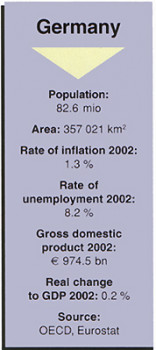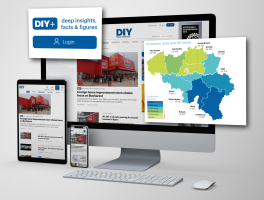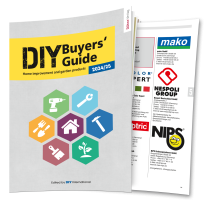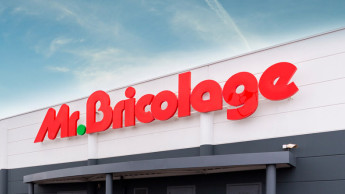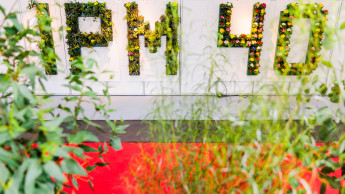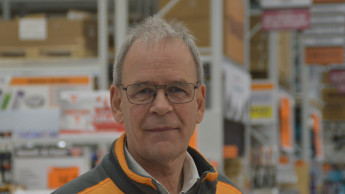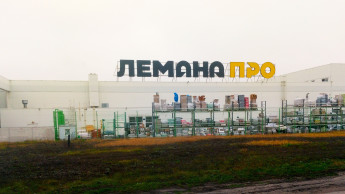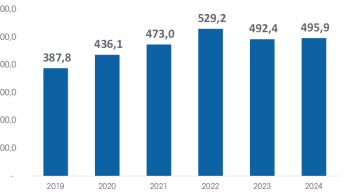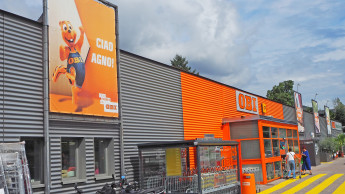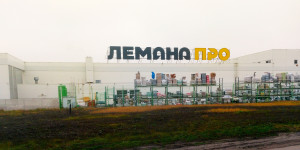The year 2002 was in retrospect a poor one for the DIY sector in Germany. Nevertheless, despite a decline in space productivity, the DIY multiples saw to continuing growth in retail area
The 30 best-performing German DIY companies, which come under consideration in the publishing house of Dähne’s annual “diy Statistik” statistical supplement, opened 107 stores both at home and abroad, thereby expanding their combined retail area by around 500 000 m². The total retail area in Germany, where 77 new outlets were inaugurated, rose by around 360 000 m² in spite of a great number of store closures. Despite these new openings, there were 39 fewer DIY superstores and builders’ merchants at the end of 2002 than one year previously (for a total in December 2002 of 4 093).
The German top 15 by gross sales in 2002
(pdf file download)
Winners and losers
Top of the expansion stakes was EMV-Profi, which owes its growth of 13.6 per cent to the incorporation of a number of Raiffeisenmarkt outlets into its business. Second-placed Hornbach grew by its own efforts by more than eleven per cent through opening ten large-format DIY and garden stores both at home and abroad. Occupying third place was BayWa, which managed to notch up over nine per cent growth through a merger with WLZ.
Certain companies saw no change to their number of stores after the addition or subtraction of outlets. These include Baustoff Verbund Süd, Coop, Hellweg, Interpares-Mobau, Kaes, Knauber, Nordhessischer Baustoffmarkt, Ratio, Rheika-Delta, Stabilo and Wal-Mart. Percentage growth was weak though still welcome for Max Bahr, Bauhaus, Distributa, Marktkauf/Dixi and OBI.
Both Hagebau and the Praktiker group numbered twelve stores fewer than a year previously. Smaller losses on balance were recorded by EGN, Krämer, NBB/Bauspezi, Nowebau, Rewe (Toom) and ZEUS.
Last year the battle for market share left behind fewer obvious traces than expected. Nonetheless, signals were apparent in the way Interpares-Mobau and Interbaustoff moved closer together, and in Hagebau’s involvement with ZEUS in the retail sector. What is more, on the commercial side, efforts are ever more frequently being made to thin out the number of suppliers and to increase European cooperation, the effects of which are then felt by the industrial side.
German DIY store groups abroad
(pdf file download)
Declining space productivity
The 30 best-performing DIY companies achieved gross sales of 22.40 bn euro in 2002 and had a combined retail area of 14.7 mio m². This means that space productivity came to 1 523 euro per m². This figure has fallen continuously over recent years: the average generated in 1995, for example, was as high as 1 841 euro per m². The weighting of retail area that has meanwhile been introduced should actually have produced the opposite result. One explanation could be that the newer, large-format and mega-format DIY stores generate lower space productivity than smaller outlets.
New stores opened in 2002 by retail area

 Menü
Menü




